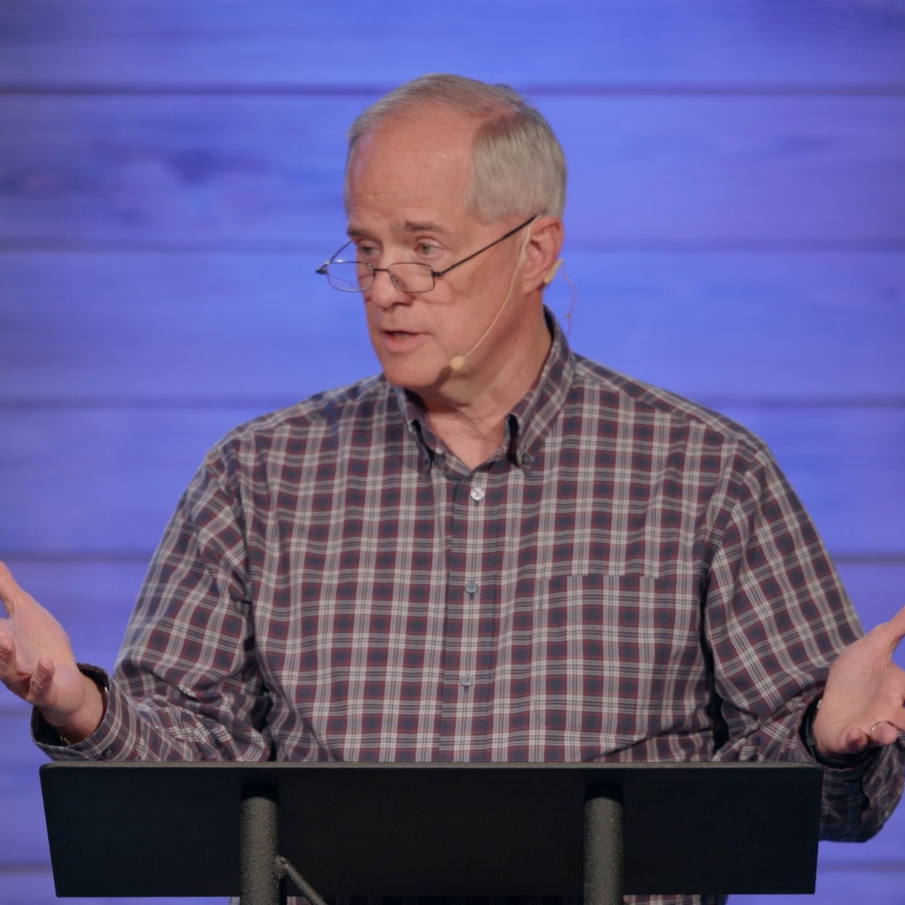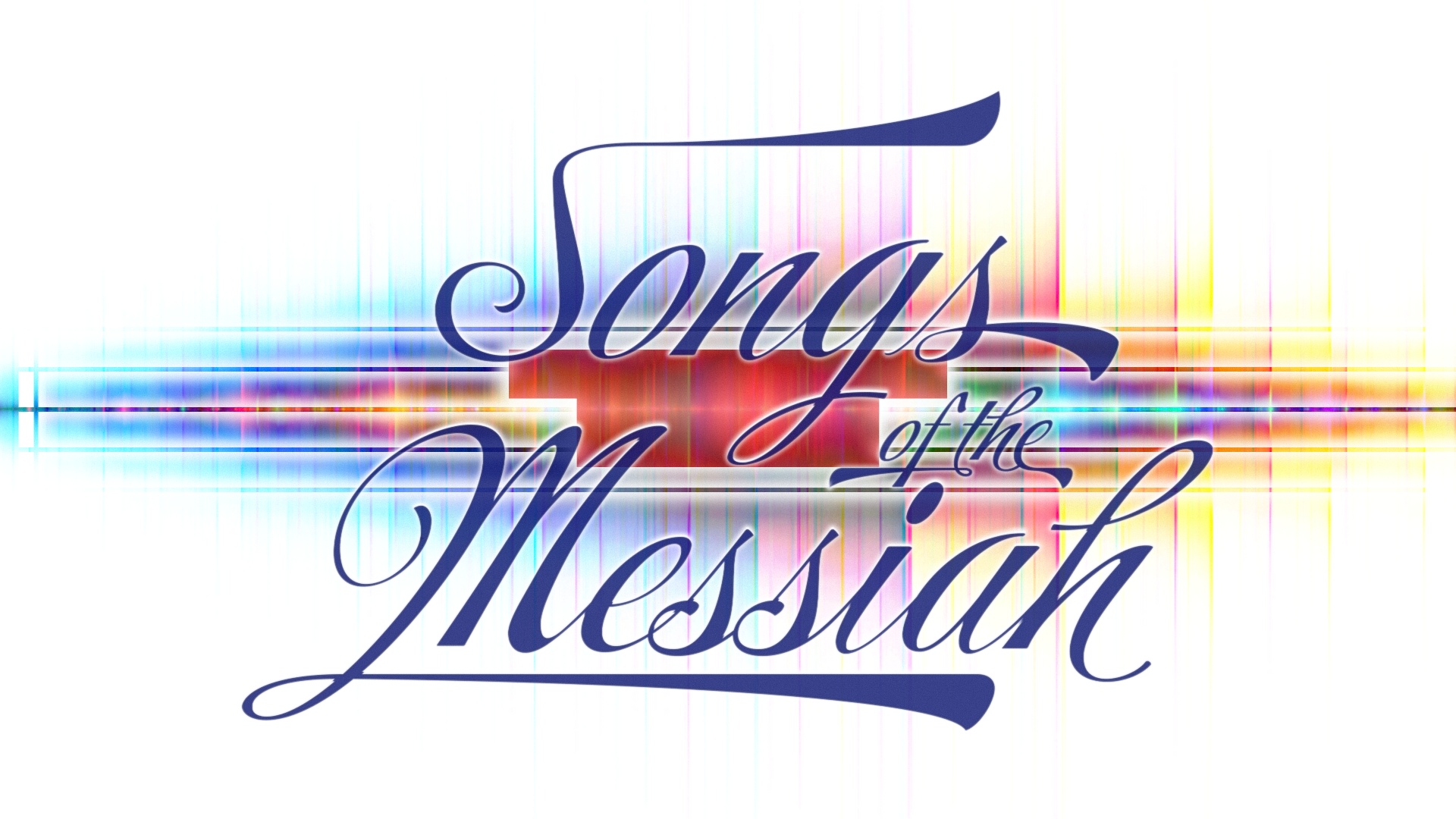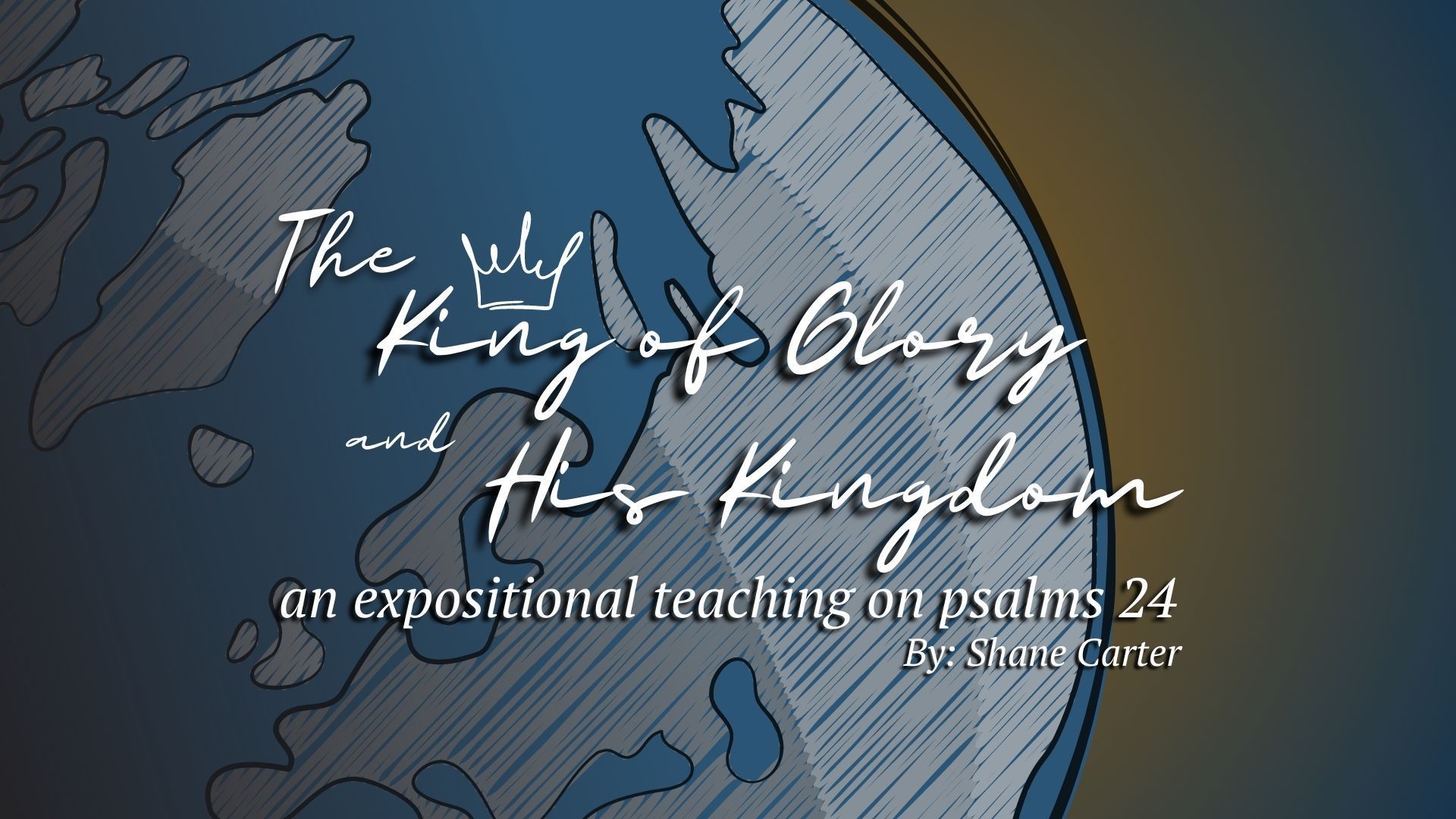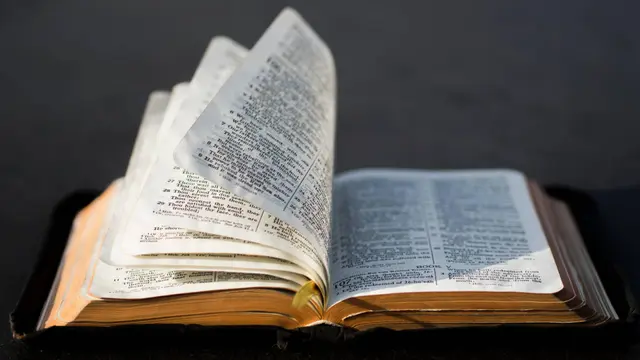MANUSCRIPT
Welcome back to our spring midweek series, “Songs of the Messiah”...in this blessed book of Psalms, we’re going to look for the Person and Work of Jesus Christ...last week we looked at Psalm 8, this week we turn our attention to Psalm 16, the second of our seven songs of the Messiah...
In John 12.21, let’s recall John’s record of our theme verse...20 Now among those who went up to worship at the feast were some Greeks. 21 So these came to Philip, who was from Bethsaida in Galilee, and asked him, “Sir, we wish to see Jesus.”
That’s our goal in life...to help people see Jesus...in the Word and in us...and we will see Him in this marvelous book...
As I said, we’ll cover some background material each week...tonight, I wanted to highlight the first two psalms of the book...Psalm 1 and Psalm 2 are usually considered introductions to the entire book...many scholars have referred to them as the figurative pillars corresponding to the two physical pillars at the door of Solomon’s Temple...I Kings 7.21 21 He set up the pillars at the vestibule of the temple. He set up the pillar on the south and called its name Jachin, and he set up the pillar on the north and called its name Boaz.
Why is that?
They introduce themes that are found throughout the entire Psalter...first, the comparison of the righteous and the wicked in Psalm 1 sets the tone for similar comparisons throughout the book...and the critical difference of the response to God’s Word...
The righteous delight in the Law of the Lord, meditating on it day and night, thriving as a tree firmly planted by streams of water, while the wicked are like chaff that the wind blows away...
In Psalm 2, the focus turns from the Blessed Man who loves the Torah of God, to the second theme, the Messiah, the Son of God and the King...Psalm 2.2...
Why do the nations rage
and the peoples plot in vain?
2 The kings of the earth set themselves,
and the rulers take counsel together,
against the Lord and against his Anointed...
This theme of the coming Messiah also pervades the entire book of the Psalms...
O. Palmer Robertson captures the significance of Psalms 1 and 2 this way:
Taken together, these two psalms define the substance of essentially all that will follow throughout the remainder of the Psalms. The first psalm declares the critical character of the law; the second psalm presents the Son appointed by the Lord who will ultimately extend the messianic kingdom to the ends of the earth.
I encourage you to read and meditate on Psalm 1 and Psalm 2 whenever you turn to this book...they are both well worth our time and memorization...let them be your entrance into the temple of the book of Psalms...
Now let’s turn to our Psalm for tonight: Psalm 16
As we start, I want to challenge you to consider a question: where do you place your confidence? Your certainty, your faith, your trust? The word is used in Hebrews 10.19-22
19 Therefore, brothers, since we have confidence to enter the holy places by the blood of Jesus, 20 by the new and living way that he opened for us through the curtain, that is, through his flesh, 21 and since we have a great priest over the house of God, 22 let us draw near with a true heart in full assurance of faith, with our hearts sprinkled clean from an evil conscience and our bodies washed with pure water.
We can draw near because we have confidence...but that confidence has to be rooted in something...the world would say we should be confident in ourselves, our abilities, our status, our popularity, our wealth, our relationships...
The psalmist David says our confidence, our hope, our trust, can only rest in One: the Almighty God – we understand why from Psalm 16
1 Preserve me, O God, for in you I take refuge.
2 I say to the Lord, “You are my Lord;
I have no good apart from you.”
3 As for the saints in the land, they are the excellent ones,
in whom is all my delight.
4 The sorrows of those who run after another god shall multiply;
their drink offerings of blood I will not pour out
or take their names on my lips.
5 The Lord is my chosen portion and my cup;
you hold my lot.
6 The lines have fallen for me in pleasant places;
indeed, I have a beautiful inheritance.
7 I bless the Lord who gives me counsel;
in the night also my heart instructs me.
8 I have set the Lord always before me;
because he is at my right hand, I shall not be shaken.
9 Therefore my heart is glad, and my whole being rejoices;
my flesh also dwells secure.
10 For you will not abandon my soul to Sheol,
or let your holy one see corruption.
11 You make known to me the path of life;
in your presence there is fullness of joy;
at your right hand are pleasures forevermore.
“I have no good apart from you.” (v 1-4)
This psalm begins as a lament, a call to God to save the psalmist from sure destruction...but that isn’t the nature of the entire psalm at all...as he calls for God to preserve Him, he confesses that the Lord has been faithful, as he says in you I take refuge.
That’s the cry of every believer, isn’t it...Proverbs 18.10 says
The name of the Lord is a strong tower;
the righteous man runs into it and is safe.
Where do you go for refuge, safety, security? Any other person or place or activity or relationship is a false promise...everything else in this world will disappoint us...some of us spend years trying other towers, only to eventually learn that the Lord is the only strong tower to which the righteous can run in times of trouble...
The psalmist then makes three confessions...
The first is about God Himself:
2 I say to the Lord, “You are my Lord; I have no good apart from you.”
David begins to speak to God, and it’s clear that the rest of the psalm is his prayer
The first “Lord” is, in English, Yahweh...the Name God gave to Israel through Moses...but the second, while it’s the same English word, “Lord,” it’s a different Hebrew word, ‘a-don’ – a term referring to the God of Israel that reflects His authority...”master” would be another possible translation...
David proclaims this: You, O God, are my master, You are my authority...and You are also my source of blessing...everything good – characterized by kindness, happiness, and benefit– comes from You...there’s nothing of any goodness in my life that didn’t come from You, and all the goodness I have ever received did come from You...apart from You, all I have is sin and sorrow, death and despair...
The second statement is about the people of God:
3 As for the saints in the land, they are the excellent ones, in whom is all my delight.
Now David turns to God’s people, whom he describes in three ways: 1) the saints in the land renders the Heb ‘qa-dos,’ “the holy ones”, and “the excellent ones” meaning those of great might and magnificence; these are the ones who remain faithful to Yahweh God
David also says that they are his delight, those characterized by holiness and moral purity, by might and majesty; you hear the love of God’s king for God’s people; the people of Israel are David’s joy and satisfaction
But not all of them: the third statement is about the people of Israel who have turned to idolatry:
4 The sorrows of those who run after another god shall multiply;
their drink offerings of blood I will not pour out
or take their names on my lips.
David laments those Israelites who have turned aside to other gods...their sorrows will not be added to them, but will multiply, for they will face judgment for their sins, and we know from the historical and prophetic books, that both Israel and Judah were taken into exile for their unfaithfulness to their covenant God, with only a remnant of Judah returning to the land...David declares that he will have nothing to do with their wicked faithlessness, either in vile deeds nor in the spoken word
“I bless the Lord...” (v 5-8)
Now David turns his full attention to praise of the Lord...
5 The Lord is my chosen portion and my cup;
you hold my lot.
6 The lines have fallen for me in pleasant places;
indeed, I have a beautiful inheritance.
7 I bless the Lord who gives me counsel;
in the night also my heart instructs me.
8 I have set the Lord always before me;
because he is at my right hand, I shall not be shaken.
So who is this wondrous God in whom we have placed our confidence?
First David speaks of God’s provision...He is our chosen portion, our cup, and the source of all we need...
In verses 5 and 6, the language reminds us of the apportionment of the promised land...the words “portion” “lot” and “inheritance” all refer to that moment in Joshua 18.8-10 when, after a survey of the land, Joshua cast lots for the land for each tribe, with each portion defined by geographic lines...the use here is metaphorical, as David says that the Lord is his portion, an honor reserved only for the Levites...this seems connected to I Chronicles 15.27, in which David wears a linen ephod as the Levites, and leads the procession to return the Ark of the Covenant, acting in the role of a Levite...
The Lord is David’s portion spiritually, his “pleasant place” and his “beautiful inheritance”... but similar to verse 4, that isn’t true for the wicked in the land...Psalm 11.6, also written by David, makes their portion clear...Let him rain coals on the wicked; fire and sulfur and a scorching wind shall be the portion of their cup. the difference couldn’t be more clear...
Next David speaks of the way the Lord is our guidance...He is our wisest counselor, our most important priority, and our strongest security...
Look at verse 7...
7 I bless the Lord who gives me counsel; in the night also my heart instructs me.
David sought God and listened to God’s counsel, His wisdom...and David blesses the Lord for such a precious gift...but can we know today how God counseled David, what instruction God provided to David’s heart and mind in the night?
I think we can...a clue is in Psalm 1.2, where the blessed man is one whose delight is in the law of the Lord, and on his law he meditates day and night. Based on this and other passages about the Law and God’s guidance, I believe it’s clear that the counsel of God given to David was the Torah of Psalm 1, the Law of God, His holy Word, the same Word we have today...and we have the same Teacher, the Holy Spirit, promised to us by Jesus Himself in John 14.26...
26 But the Helper, the Holy Spirit, whom the Father will send in my name, he will teach you all things and bring to your remembrance all that I have said to you.
Can we experience God’s counsel today? Of course we can, and He desires us to know Him...seek His Word and meditate on His truth, and you will know His guidance and instruction, too...
And what follows receiving God’s guidance? Verse 8...
8 I have set the Lord always before me; because he is at my right hand, I shall not be shaken.
Based on God’s counsel, David lived in a constant state of awareness of the Lord...this is David’s action, done in obedience to the Lord...we see this lived out in Psalm 27.7-8...
7 Hear, O Lord, when I cry aloud;
be gracious to me and answer me!
8 You have said, “Seek my face.”
My heart says to you,
“Your face, Lord, do I seek.”
David was secure in God’s counsel and presence, with God at his right hand...such a one shall not be shaken.
The Path of Life (v 9-11)
So what are the results of David placing his confidence in God? Let’s look at verses 9 – 10...
9 Therefore my heart is glad, and my whole being rejoices;
my flesh also dwells secure.
10 For you will not abandon my soul to Sheol,
or let your holy one see corruption.
I count five outcomes...all linked to the actions in verses 5 through 8
A glad heart...
A joy-filled being...these first two form a pair...David’s heart can’t contain the gladness created by experiencing the provision and guidance of the Lord, and it spills out into all the rest of his life...the Hebrew word is ‘ka-bod’ ...these are the typical translations...”glory” can be either God’s glory, or man’s glory...Psalm 3.3 renders it as “glory” ... But you, O Lord, are a shield about me, my glory, and the lifter of my head. In the context of Psalm 16, “whole being” gets it right...and David’s whole being is filled with joy and gladness!
A secure life...”flesh” means just that, the physical body...how can it be that David, who faced countless threats during his lifetime, can say his flesh dwelled securely? It’s because he knew nothing would come to him that had not passed through his God...David was secure in his trustworthy God, even if adversity or danger came his way...his Good Shepherd was faithful!
A redeemed soul...David is clear at this point: he makes the definitive statement that God will not abandon David’s soul to the place of the dead, Sheol, the OT descriptive word for the afterlife...it appears as a place of inactivity or rest, where, frankly, not much happens...for more on the idea of Sheol in the Psalms, check out Psalms 49 and 73...here, David writes with conviction that his God will not leave him permanently in this non-existence, but instead will give him yet another blessing...
A resurrected body...You will not...let your holy one see corruption. This verse is the main reason this psalm is considered a messianic psalm
Peter quotes it in Acts 2.24-28 at Pentecost as he speaks of Christ...
24 God raised him up, loosing the pangs of death, because it was not possible for him to be held by it. 25 For David says concerning him,
“‘I saw the Lord always before me,
for he is at my right hand that I may not be shaken;
26 therefore my heart was glad, and my tongue rejoiced;
my flesh also will dwell in hope.
27 For you will not abandon my soul to Hades,
or let your Holy One see corruption.
Luke records Paul quoting Psalm 16.10 in Acts 13.35 as Paul preaches of the resurrection of Jesus at Antioch of Pisidia
Both the apostles apply Psalm 16.10 to Jesus Christ, affirming the validity of the physical resurrection of Christ, that, He did not remain in the grave but instead rose from the dead...
But in the original context, David speaks in the psalm in the first person, of himself...
How can both be true?
Let’s look first at Peter’s sermon at Pentecost...
Peter explains his application of the passage to Christ in Acts 2.29-32...
29 “Brothers, I may say to you with confidence about the patriarch David that he both died and was buried, and his tomb is with us to this day. 30 Being therefore a prophet, and knowing that God had sworn with an oath to him that he would set one of his descendants on his throne, 31 he foresaw and spoke about the resurrection of the Christ, that he was not abandoned to Hades, nor did his flesh see corruption. 32 This Jesus God raised up, and of that we all are witnesses.
With regard to Jesus, David was speaking as a prophet...he knew one of his sons would be on the throne forevermore, even if at the time he wrote Psalm 16, he didn’t know exactly who or when...that Holy One would not see corruption...
But I think there’s more to Psalm 16 than just the sermons of Peter and Paul, as authoritative as they are...in I Chronicles 17.11-14, Nathan prophesies to David of God’s promise: 11 When your days are fulfilled to walk with your fathers, I will raise up your offspring after you, one of your own sons, and I will establish his kingdom. 12 He shall build a house for me, and I will establish his throne forever. 13 I will be to him a father, and he shall be to me a son. (quoted in Hebrews 1.5) I will not take my steadfast love from him, as I took it from him who was before you, 14 but I will confirm him in my house and in my kingdom forever, and his throne shall be established forever.’”
In verse 17, David himself speaks of God’s promise: 17 And this was a small thing in your eyes, O God. You have also spoken of your servant's house for a great while to come, and have shown me future generations, O Lord God!
So we know God gave David a promise about his offspring, that one day his Greater Son would sit again on David’s throne, this time for all eternity...but then David uses the language of revelation...he says that God has “shown” him “future generations”...
How much specific knowledge did the Lord give David about his future generations? We don’t know exactly, but enough that the Holy Spirit through Peter said David’s words in Psalm 16 were spoken of Jesus Christ...
But there is meaning in the psalm’s original context, too...David says of himself that he knows that God will not leave him forever in the underworld of the dead, but based on I Chronicles 17, Acts 2, and Acts 13, I think it’s also true that David was confident that the incorruptible Holy One Who would be his offspring, yet also be the Son of God (I Chronicles 17.13) would bring about David’s resurrection in the latter days...
Conclusion: The Path of Life (Psalm 16.11)
This wonderful psalm concludes with verse 11
11 You make known to me the path of life;
in your presence there is fullness of joy;
at your right hand are pleasures forevermore.
This is true of David’s witness to his Lord, and true of Jesus’s witness to His Heavenly Father...and it’s true of us, too...our loving Father has made known to us the path of life...on this path, is there adversity and suffering? Yes...loss and disappointment? Yes...even sickness and death? Yes...but our Christian journey isn’t called the path of life because it’s simple or easy or profitable...it’s called the path of life because we walk in the kingdom of God today, and we will reign with our Lord Jesus in the kingdom of God at the end of days...it’s not about what we have experienced at the end of each day, it’s about Who awaits us at the end of all days...in His presence there is joy unending, at His right hand are pleasures forever, forever, and ever...and I’ll add on the last verse of the next psalm, 17.15... As for me, I shall behold your face in righteousness; when I awake, I shall be satisfied with your likeness. Can I say something to you about heaven? We will be satisfied as we see the face of Jesus...and we will know we are fully and finally home.
So what do we see of Jesus from this psalm?
He is our strong tower, our refuge in times of trouble
He is our portion and our cup, our counselor and our instructor
He is our steadfast God, both before us and at our right hand
He is the One who keeps us from falling apart
He is our joy and our security
He is the incorruptible Holy One, eternal in the heavens
He is our Guide and Companion along this path of life, real yet unseen, until the day He takes us home and we see Him face to face, behold His welcoming smile, and hear “well done, good and faithful servant...enter into the joy of your Lord”
In whom is your confidence? O Christian, don’t be shaken or tempted by the world...you place everything in the strong hands of Jesus... for only He is completely trustworthy

Taught by Mike Morris
Associate Pastor of Verse By Verse Fellowship






